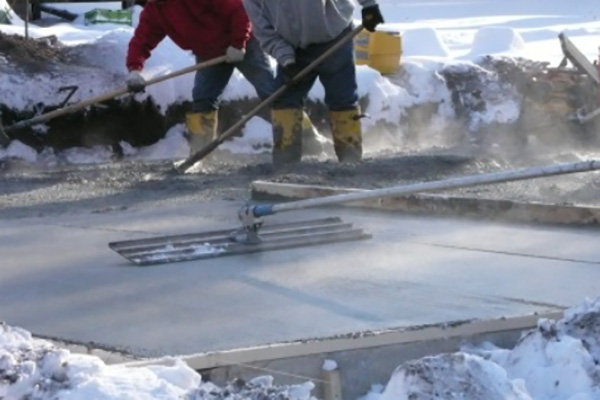In the world of construction, concrete plays a critical role in almost every project, from small residential buildings to massive infrastructure developments. To ensure that concrete cures properly and within the required timeframe, various additives are often used to modify its properties. One such additive is the non-chloride accelerator for concrete, a crucial component that helps to speed up the curing process without compromising the structural integrity of the material.
Understanding Accelerators in Concrete
An accelerator in concrete is a chemical admixture that reduces the time required for the concrete to set and gain strength. These accelerators are especially useful in cold weather conditions, where low temperatures can significantly slow down the curing process. Traditionally, chloride-based accelerators were widely used due to their effectiveness and affordability. However, they come with a major drawback—chlorides can cause corrosion of the steel reinforcement within the concrete, leading to premature deterioration and failure of the structure.
The Need for Non-Chloride Accelerators
Given the corrosive nature of chlorides, there was a pressing need for an alternative that could offer the same benefits without the associated risks. This led to the development of non-chloride accelerators for concrete. These accelerators are designed to provide a rapid set time while being safe for use with steel reinforcement, making them ideal for projects where long-term durability is critical.
Non-chloride accelerators are typically based on chemicals such as calcium nitrate, calcium formate, and sodium thiocyanate. These substances work by speeding up the hydration process of cement, which is the chemical reaction that occurs when water is added to cement to form concrete. By accelerating hydration, these additives help the concrete to reach its initial set more quickly and develop early strength faster, which is crucial in maintaining the construction schedule, especially in adverse weather conditions.
Applications and Benefits
- Cold Weather Construction: One of the primary applications of non-chloride accelerators is in cold weather concreting. When temperatures drop, the chemical reactions involved in cement hydration slow down, delaying the setting and hardening of concrete. This can be a major issue in construction, as it can lead to prolonged construction times and increased costs. Non-chloride accelerators help mitigate this issue by ensuring that the concrete sets within a reasonable timeframe, even in cold conditions.
- Enhanced Durability: By avoiding chlorides, non-chloride accelerators prevent the risk of corrosion in steel reinforcement. This is particularly important in structures exposed to moisture, such as bridges, parking garages, and marine structures, where corrosion could otherwise compromise the integrity of the concrete.
- Versatility: Non-chloride accelerators are compatible with various types of cement and concrete mixtures. They can be used in both ready-mix and precast concrete applications, making them a versatile choice for a wide range of construction projects.
- Improved Early Strength: In addition to faster setting times, non-chloride accelerators help in achieving higher early strength. This is beneficial in situations where early load-bearing capacity is required, such as in the construction of precast elements or when early removal of formwork is desired.
Limitations and Considerations
While non-chloride accelerators offer numerous benefits, there are some considerations to keep in mind. They are generally more expensive than their chloride-based counterparts, which can increase the overall cost of the concrete mix. Additionally, the effectiveness of non-chloride accelerators can vary depending on the specific mix design, ambient temperature, and other factors, making it important to carefully select the appropriate product for each project.
Moreover, the use of non-chloride accelerators may require adjustments to other aspects of the concrete mix, such as the water-cement ratio or the use of other admixtures, to ensure optimal performance. Contractors and engineers need to be aware of these factors and work closely with suppliers to select the best product for their needs.
Conclusion
Non-chloride accelerators for concrete represent a significant advancement in the construction industry, offering a safe and effective solution for speeding up the curing process without compromising the durability of reinforced concrete structures. Their ability to enhance early strength and ensure rapid setting in cold weather makes them an invaluable tool for contractors working in challenging conditions. As the demand for durable, long-lasting infrastructure continues to grow, the use of non-chloride accelerators is likely to become increasingly widespread in construction projects around the world.
Post time: 8 月-12-2024





